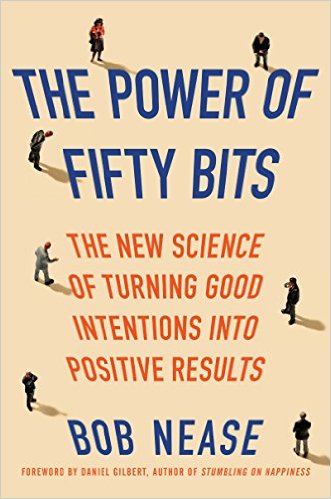In a previous post, I shared a recent study that suggested that half measured confessions aren’t very effective, and that only a full reboot would wipe away the guilt. But why is that the case? The answer may lie in the way our brains have recycled circuits originally developed for one purpose for use in others.
To understand this arrangement, let’s do a thought experiment. This is a pleasant one, as it involves little math, and the potential for you to make some quick (albeit imaginary) money. Suppose an attorney calls you on the phone and explains that an unknown and somewhat quirky old man has passed away, and that there’s a funky clause in his will. Specifically, he’s left $4 to his niece, Tina. Tina had the choice to either keep the $4 outright, or to have the money sent to a stranger (i.e., you) and tripled, with the hope that you’d send some of it back. The attorney tells you that you are free to keep as much of the $12 (i.e., the original $4 tripled) as you wish, and that anything left over will then be sent back to Tina. As you begin to gingerly ask about the specifics, the lawyer catches on and assures you that Tina has no idea who you are, and that your identity will be kept secret from her. He asks you how much of the $12, if any, you’d like to return to Tina.
Think for a minute about what you’d do in this situation. If your only consideration is having more money, you’d keep the whole $12. After all, you’ve been assured that your identity will never be revealed; from a pure economic perspective, that’s the best move. This approach is akin to stiffing a waiter’s tip when you’re at a restaurant in a foreign city to which you are certain you’ll never return.
On the other hand, you might be hesitant to be the kind of person who only cares about money, and doesn’t tip waiters at restaurants in cities to which he knows he will never return. Thoughts of your mother and how she raised you, things you learned in Sunday school about the Golden Rule, might flit through your mind. If you’re like most people, you’d probably send something back to Tina; after all, she trusted you enough to send the money in the first place.
But the one thing that’s unlikely to come to mind as you think through how to respond to the lawyer is what the room smells like. But that does matter, and quite a bit. Researchers found that people playing the trust game in an unscented room on average returned $2.81 of the $12, while those who played the game in a room that had been spritzed with citrus-scented Windex returned nearly twice that amount – $5.33 of the $12.00. In a second experiment, the same researchers found that the “Windex maneuver” significantly increased subjects’ interest in volunteering for Habitat for Humanity; the fraction of people interested in donating to that charity jumped from 6% to 22%.
For many of us, these results are a bit of a surprise. There are a lot of reasons to return more or less of the money that Tina sent along in good faith, but whether the counters have had a thorough scrubbing isn’t typically at the top of the list. Nonetheless, it turns out that our sense of what’s right is sensitive to things that most of us would think should be irrelevant.
In another study, subjects were shown either a video clip that induced disgust – a segment from the film Trainspotting in which main character sticks his head in a toilet that’s yet to be flushed (I am dancing around the specifics here), or a control clip of the death scene from the movie, The Champ. They were then asked to evaluate the morality of a number of actions related to purity, either violations such as “being sexually promiscuous” or virtues such as “maintaining a healthy body.” They found that relative to the control, exposure to the Trainspotting clip increased criticism of violations of purity and increased praise for purity-related virtues. Another set of researchers used the same clip, and found that they could make its effect disappear by having subjects wash their hands after seeing the video.
Nature is like MacGyver, who likes to make clever little things out of odd bits.The connection between physical disgust and moral disgust isn’t a coincidence. Non-invasive scans of the brain (called functional magnetic resonance imaging, or fMRI) show that these reactions activate overlapping areas of the brain. In other words, some of the same brain circuitry that is used to deal with physical purity, like feelings of disgust about unclean objects and contaminated foods, has been repurposed to manage moral purity. This means that if we fiddle with one type of purity by making a room smell cleaner and measure behavior or attitudes along another like morality, we see crosstalk. Spraying a room with citrus-scented Windex changes how much of a goody two shoes we’ll be when playing the trust game.
This sort of co-opting or repurposing of one cognitive capability for a new use makes a lot sense from an evolutionary perspective. Nature, after all doesn’t have the luxury of starting with a blank slate and then designing the optimal solution for each and every new problem. Instead, she’s much more like the lead character in the television show MacGyver, who “likes to make clever little things out of odd bits.” When it comes to the brain, this repurposing means leveraging existing circuits to do new but related things. The result is a kind of brainy messiness in which cognitive activities that we think of as distinct in reality interact or overlap with one another.
It’s crucial to understand that the brain wasn’t built from scratch to solve contemporary problems, but instead is the accumulation of countless adaptations that have resulted from natural selection and the pressures brought to bear by what was, at times, a very different environment. This means that our behavior, at least in part, emerges from circuitry that is shared to deal with different but related concepts.
And this may be why half measured confessions aren’t much good. A half of a confession still leaves the the conscience “dirty” just the way a half cleaned toilet bowl is still dirty.



